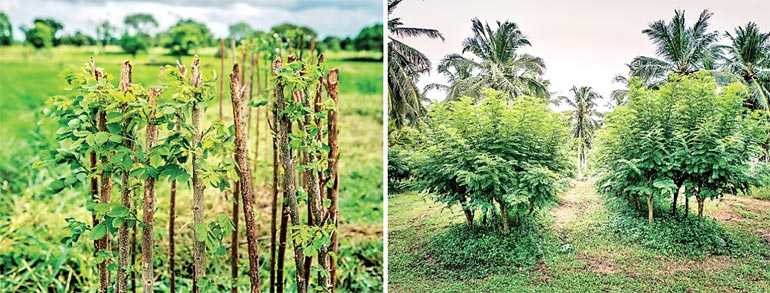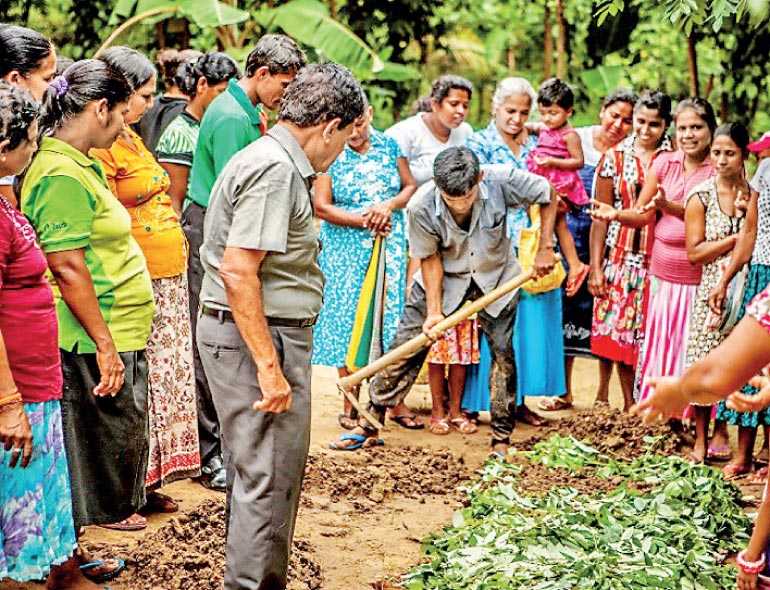Wednesday Feb 25, 2026
Wednesday Feb 25, 2026
Thursday, 10 September 2020 00:01 - - {{hitsCtrl.values.hits}}


By Lucky Dissanayake
The article by Nalaka Gunewardene on Dr. Ray Wijewardene about how Sri Lanka can become green energy secure was really perceptive.
I had the pleasure of meeting Dr. Wijewardene in 2009 on a visit to Sri Lanka and was inspired by his vision on how Gliricidia could be used to provide energy generation, livelihood development and have a positive impact on the environment at the same time. A really simple solution that could deliver multiple benefits. The idea was firmly implanted as a potentially exciting and viable business opportunity
Over the next few years, I researched Dr. Wijewardene’s ideas and then incorporated Biomass Supplies in 2013, initially funded by international investors. The business employs 46 people today, and impacts the livelihoods of thousands of smallholder farmers. We supply deforestation-free, ethical, traceable, internationally certified biomass resources for local industry use. Our focus from the start has been on developing a robust, scalable and sustainable biomass supply chain.
Deforestation-free biomass
The primary biomass crop developed by Biomass Supplies is Gliricidia Sepium, a rapidly growing, short-rotation tree that is found growing wild throughout Sri Lanka. A native plant of Mexico and Central America, Gliricidia was introduced to Sri Lanka in the 18th century to provide shade to coffee plants, of which Sri Lanka was once the world’s largest producer, and is now pervasive across the country. Gliricidia is a nitrogen-fixing soil improver. In addition to its use as “live fencing” by smallholders, its leaves and bark can be used as a highly effective, organic fertiliser and pesticide and serves as an excellent shade tree for intercropping with cash crops.
The most common forms of biomass available in Sri Lanka are fuel wood from forestry, agricultural residues and organic waste. Fuel wood is harvested from main stems, branches and other parts of trees coming from natural forests and sources such as tea, rubber, coconut plantations, homesteads and roadsides.
Deforestation of native forests for the use of fuel wood is unacceptable in any form especially given the benefits of biodiverse ecosystems in mitigating effects of climate change. Gliricidia, a fast-growing tree is the ideal alternative. The tree grows well under various soil and climatic conditions, and it is draught resistant once established. The easy coppicing or lopping of Gliricidia contributes to its acceptability as a source of sustainable fuel wood. It can be coppiced at heights of 20, 40 or 609 cm without much difference in biomass production. And Biomass Supplies deforestation-free fuelwood is certified by the Roundtable for Sustainable Biomaterials – a globally recognised certification, we were the first company in Asia to achieve this certification.
Social, economic and environment impact
Biomass Supplies developed a unique outgrower model for biomass resource development since its start of business in March 2013. Smallholder farmers and private estates are encouraged to plant trees in a single, double or triple fence around their smallholding and to inter-crop Gliricidia with their cash crops. This way collectively they will be planting millions of Gliricidia trees. The outgrower model enables farmers to reduce spending on agro-chemicals, which improves environmental ecosystems by reducing fertiliser and pesticide runoff. It also helps soil fertility and locks in soil carbon. We have hosted knowledge programs, demonstrations and planting programs focusing on Gliricidia; 700+ training programs have been conducted to date in rural areas. Biomass Supplies purchases only Gliricidia branches as fuelwood to supply local industry demands, and provides an additional source of income to these communities from what is essentially agricultural waste.
The model used by Biomass Supplies can be scaled up across Sri Lanka by partnering with other companies and the Government. Our ambition is to plant one billion Gliricidia trees across country and thus provide millions of tons per of raw biomass feedstock. This business offers the possibility to radically transform Sri Lanka’s energy and food nexus and bring in necessary awareness to the Gliricidia’s importance as the fourth plantation crop of Sri Lanka.
Carbon Sequestration and Gliricidia
Oceans and forests are natural carbon sinks as they extract CO2 from the atmosphere through natural processes. Soil organic carbon is crucial to soil health, fertility and ecosystem services, including food production – making its preservation and restoration essential for sustainable development. The Food and Agriculture Organisation of the United Nations estimates that the first meter of soil globally holds an estimated 1,417 GGt of carbon1 – double the amount in our atmosphere. And soil at greater depths holds three times as much carbon than the atmosphere.
Industrial agriculture practices and deforestation are the two major culprits of releasing CO2 and greenhouse gases to the atmosphere. We can mitigate effects of climate change and improve food production through re-forestation of degraded lands and sustainable management of soil. Although a slow process, rehabilitating soil globally can remove up to 51 Gt of carbon2 from the atmosphere and ensure climate resilience.
The use of cover crops such as Gliricidia as green manure are vital to increase soil carbon stocks. Intercropping Gliricidia with cash crops and as a boundary fence can also help.
I believe our business is one of the examples of Dr. Ray Wijewardene’s vision and inspiration wholly in action. Biomass Supplies will play an important role in spearheading and shaping the energy nexus in the country. We will also deliver on seven UN SDG goals through its normal business activities – No Poverty, Zero Hunger, Good Health and Wellbeing, Gender Equality, Clean and Affordable Energy, Climate Action and Partnership for The Goals.
I hope all those reading this article will consider planting Gliricidia on your plantations estates and smallholdings, and partner with us to build a climate resilient Sri Lanka.
Footnotes
http://www.fao.org/about/meetings/soil-organic-carbon-symposium/key-messages/en/
http://www.fao.org/land-water/news-archive/news-detail/en/c/1039241/